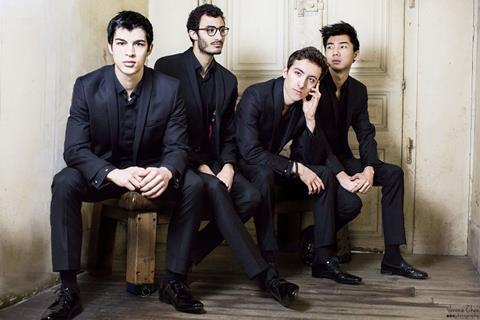Classical music should be a beacon of internationalism, yet each country’s scene appears to be stubbornly insular, writes Charlotte Gardner

Is England growing as insular as France in her musical tastes?’ Surely an opening gambit guaranteed to get people’s backs up in equal measure on either side of the channel. However, this is what a British critic wrote in the early 1920s in a column criticising the ‘entire absence of everything that might be called official support’ for a concert given at London’s Queen’s Hall by Maurice Ravel.
When that juicy historical column pinged on to my Twitter feed last July, courtesy of composer Thomas Adès, the timing couldn’t have been more pertinent, because out of a combination of determined internationalism and sheer artistic curiosity I was spending 2018 seeking out France’s lesser-known musical riches. It was a wonderful year, too.
Take June, when I visited Burgundy’s Musique et Vin au Clos Vougeot festival and discovered a tiny team quietly delivering some of the most profound support for young artists and luthiers I’d ever seen. In July I discovered beautiful Montpellier’s Festival Radio France Occitanie, where astonishingly over 80 per cent of its array of high-level concerts are free. This was also the year I fell for the voice of composer Benjamin Attahir.
However Adès’s tweet suddenly made me scrutinise whether that London critic would still have an axe to grind today. Let’s begin with composers. While it’s hard to come up with something solid without taking a fine-tooth comb through the seasons of the major halls, ensembles and festivals, observationally and anecdotally we don’t appear to have progressed much.
A noisier and more proactive partnership that could be enriching for everyone
Positives include encouraging programming from the likes of the BBC orchestras and the Philharmonie de Paris, and that those such as Adès and Pascal Dusapin are beginning to grow profiles across the channel. But asking around, there were blank French faces in response to major and rising British names such as James MacMillan, Julian Anderson, Judith Weir and Huw Watkins; ditto blank British faces for Philippe Manoury, Philippe Hersant, Eric Tanguy, Camille Pepin and Attahir.
On to performers, and the story appears to be that those who cross the divide are either with major agencies or on an international young artist scheme. This, in turn, means fewer British young artists performing in France than vice versa, because while France does have its smaller, internationally generous initiatives – festivals such as the Auverssur-Oise and the aforementioned Musique et Vin, and Gautier Capuçon’s Fondation Louis Vuitton class – they don’t come close to the sheer array and internationalism of British schemes such as BBC New Generation Artists, Young Classical Artist Trust or Borletti-Buitoni Trust.
While France’s Diapason d’Or de l’annee awards are as international as those of Gramophone, BBC Music magazine and the Classical Brits, its high-profile Victoires de la Musique nominate only French artists, or artists resident in France for a certain number of years. I genuinely can’t decide whether this is a positive or negative thing, so I’m just leaving it here for you to mull over yourselves.
Certainly it’s tricky to get the balance right between nurturing home-grown talent and championing excellence without borders. Both are necessary. However, when it comes to the UK and France I feel there’s a better balance to be found – a noisier and more proactive partnership that could be enriching for everyone; and in the context of these troubling socio-political times, now feels like a good moment to seek it.
After all, if classical music – the most international musical genre – can’t be international, I’m not sure we can expect the wider world to be. One could also argue that a true Franco-Anglo partnership would ironically constitute a brand new bubble needing to be popped. Still, perhaps it could also inspire determined internationalism.










































No comments yet